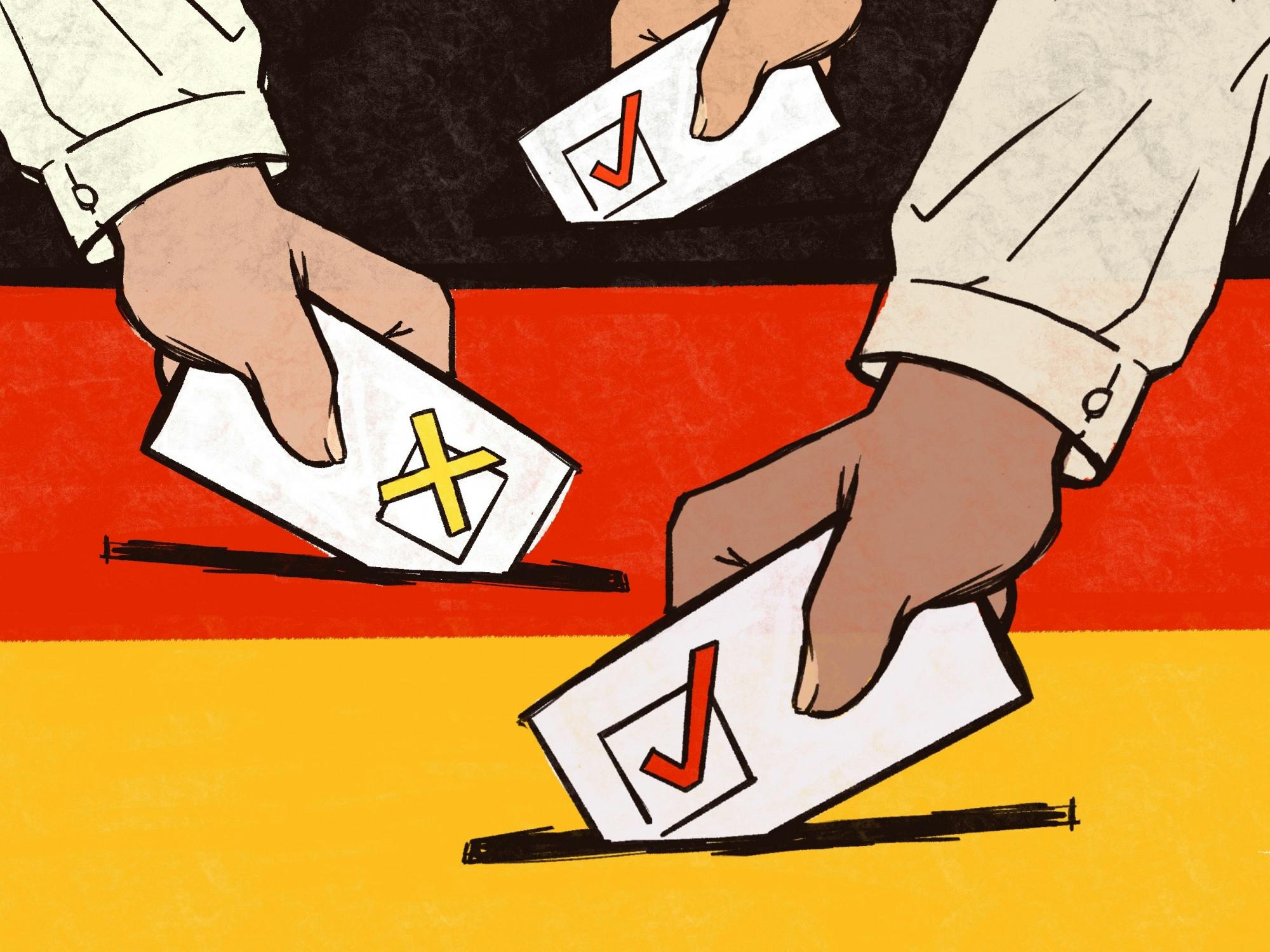In the week leading up to Sept. 26, thousands of Germans citizens living internationally will vote by mail in the nation’s federal election.
Post-doctoral researcher Kristian König and physics graduate student Stefanie Adams are both German citizens and will vote by mail in the election.
The election determines how many seats each party will get in the Bundestag, or the German parliament, and the next chancellor. The current Chancellor Angela Merkel, who is often cited as one of the most powerful people in the world, will step aside after 16 years in the position.
This is not the first time König is voting, but it will be the first time since he has been voting that Merkel is not running for chancellor.
“For the last 16 years, always the conservative party won," König said. "Currently, it seems that another party will win so honestly, for me, that’s a bit surprising...I’m now 31, basically, since my first election, I had the same chancellor.”
German citizen and professor Senta Goertler said she will not be voting in this election because she does not live in Germany. Goertler said when she leads the MSU exchange program in Germany, she does vote in the election.
“It just happened that both times it was an election year and I voted in those elections,” Goertler said.
Merkel will leave office with a high approval rating and leaving some Germans wishing that Merkel would run for the position again. None of the candidates running for chancellor have received outstanding enthusiasm from voters, including Armin Laschet, the candidate endorsed by Merkel.
Laschet is the leader of the Christian Democratic Union, or CDU, and the Minister of the German state North Rhine-Westphalia. The CDU is the center-right party that currently has the highest number of seats in the Bundestag. Laschet was seen as the frontrunner of the race but has fallen behind after a video of him laughing at the scene of flooding surfaced, which many Germans found inappropriate.
The current leader in the polls is Vice-Chancellor Olaf Scholz of the center-left Social Democrat Party. Because of his position, Scholz, despite not being endorsed by Merkel, is seen by many as the successor to her.
The Green Party candidate Annalena Baerbock is the climate change-focused candidate who has been consistently third in polling. This is the first time the Green Party has had a real shot at winning the chancellorship, but, because of Merkel's popularity, most Germans want a candidate similar to her. Baerbock has premised her campaign on change.
Adams and König both cited climate change as one of the main issues they care about in the election.
“Worldwide, there are so many catastrophes related to climate change,” König said. “That’s really kind of important to me.”
While it does not have a viable candidate for chancellor, Adams, Goertler and König all said they do not wish for Alternative for Germany, or AfD, the far-right party, to gain any more power than they already have.
“In my eyes, they do not belong in any parliament,” Adams said.
Goertler said she thinks the public frustration with COVID-19 rules in Germany and the lack of enthusiasm for the candidates could benefit the AfD.
"Those people are upset and mad and they're going to show up and vote," Goertler said.
Support student media!
Please consider donating to The State News and help fund the future of journalism.
Discussion
Share and discuss “German citizens at MSU weigh in on upcoming German election” on social media.







